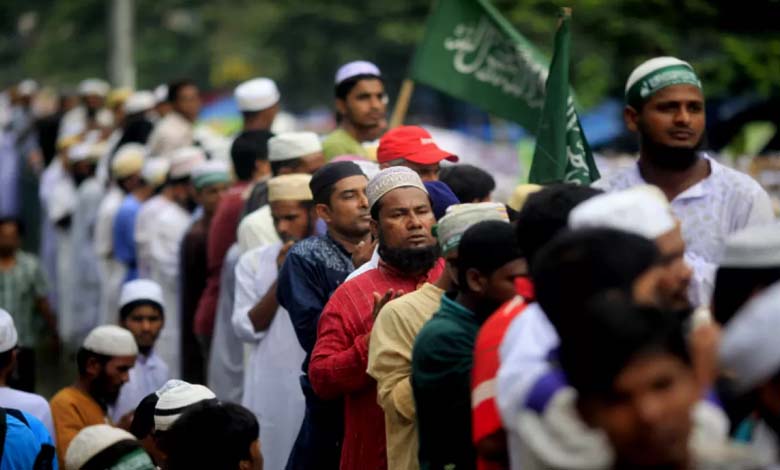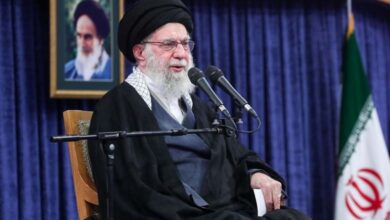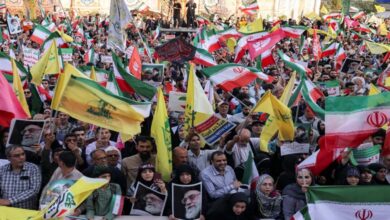What Are the Implications of Lifting the Ban on Jamaa Islamiya in Bangladesh?

The decision by the Bangladeshi government to lift the ban on Jamaa Islamiya, the political movement with deep Islamic roots that had remained banned for many years, has raised several questions about its implications on both local and international levels. There is growing anticipation about the potential impact of this decision on political and social stability in Bangladesh, as well as on its relations with regional and international powers.
-
The Relationship Between Al-Jama’ah Al-Islamiyah in Bangladesh and the Muslim Brotherhood is Extremely Strong: How?
-
Shafiq Rahman: The fall of the leader of the Muslim Brotherhood chaos in Bangladesh
In response to these questions, a report from the Egyptian site “Al-Bawaba” highlights the need to connect the available information about Bangladesh internally to understand the impact of these developments on the political and social landscape of the surrounding region in general.
The report notes that Jamaa Islamiya has successfully established its presence outside Bangladesh. In Pakistan, the group remains a prominent political force despite its involvement in armed activities through its student wing, Jamaa Islamiya Students. The organization has relationships with various armed groups, including the Muslim Brotherhood.
-
The Death of One of the Most Dangerous Theorists of the Muslim Brotherhood… What Do We Know About Mohammed Ahmed Al-Rashid?
-
Linked to the Muslim Brotherhood: What Do You Know About Al-Jama’a al-Islamiyya in Bangladesh?
In Europe and the United States, Jamaa Islamiya has built a network through South Asian immigrant communities. It is particularly active in the United Kingdom, where it influences Islamic organizations and community policies. The United States has been a strong supporter of the group’s participation in political life, often urging Bangladesh to lift the restrictions imposed on the group.
The lifting of the ban on Jamaa Islamiya represents a significant shift in Bangladeshi politics, as the government had banned the group in 2013 due to the involvement of some of its members in acts of violence during the independence war.
-
Bangladesh Protests: Judiciary Reduces “Quotas” While Students Continue
-
“Daesh Khorasan” Emerges in Afghanistan
The “Al-Bawaba” report suggests that the decision to lift the ban indicates that the Dhaka government seeks to integrate Islamic currents into the official political system, thereby attracting a broader electoral base ahead of the upcoming elections.
Socially, the lifting of the ban could deepen divisions within Bangladesh, with some considering Jamaa Islamiya as a threat to religious and political pluralism, while others view the decision as strengthening democracy by providing all parties with the opportunity to participate in the political process.
-
New Threat to Global Navigation: Armed Men Seize Cargo Ship off the Coast of Somalia
-
Continuous Struggle Against Terrorism: The UAE Supports Somalia’s Stability
Bangladesh is seeking to maximize its strategic role concerning regional balance, and by lifting the ban, the Bangladeshi government will have the opportunity to leverage the close link between Jamaa Islamiya — when it engages in official political activity — and the Pakistani authorities. Additionally, Bangladesh has a very strong relationship with India, which would enable it to bridge opposing sides and automatically enhance its regional influence.
On the other hand, this development might strengthen relations between Bangladesh and certain Muslim countries that had criticized the ban on Jamaa Islamiya, such as Turkey and Qatar. These countries might seek to support Bangladesh economically and politically, leading to changes in regional alliance dynamics.
-
Taliban foreign minister Amir Khan Muttaqi visits Pakistan
-
The Security Council condemns the Houthi abuses against the children of Yemen
On the international level, the lifting of the ban on Jamaa Islamiya is viewed with concern by the United States and European countries, fearing it might signal a retreat from Bangladesh’s commitment to combating extremism. However, some believe that including Jamaa Islamiya in the political process could contribute to reducing violence and opening channels for dialogue.
Conversely, this decision could encourage human rights organizations, which have often criticized the Bangladeshi government for suppressing political opposition, to improve their perception of the Asian state.












